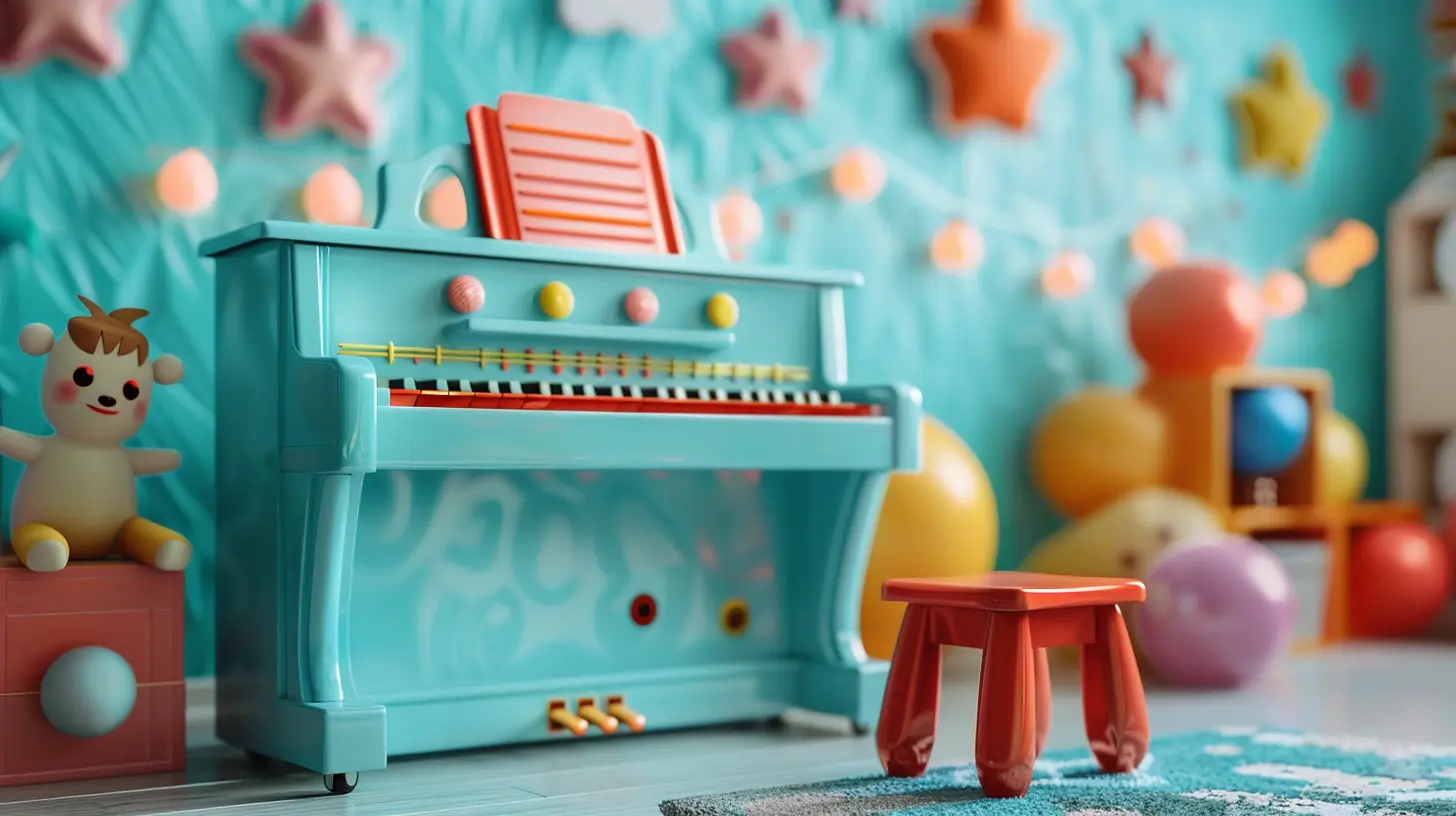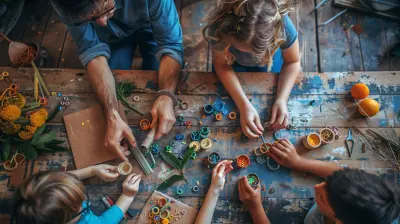How to Support Your Child’s Musical Journey at Home
4 October 2025
So, your child has shown an interest in music—how exciting! Whether they’re just starting out or already strumming, drumming, or singing their heart out, supporting them at home can make all the difference. The musical journey is a beautiful one, filled with creativity, discipline, and plenty of fun. But as a parent, how can you help without feeling like you need to be a music expert yourself?
Don't worry—I’ve got your back! In this guide, we’ll dive into practical, fun, and super-effective ways to nurture your child’s musical passion right from the comfort of your home. 
1. Create a Musical Environment
First things first, let’s set the stage—literally. A home that encourages music naturally fosters creativity. But what does that look like?- Make instruments accessible – If your child has a guitar, violin, keyboard, or even a ukulele, keep it somewhere easy to grab. If it’s tucked away in a closet, they’re less likely to practice.
- Play music around the house – Let music be part of daily life. Whether it’s piano concertos during breakfast or jazz while doing homework, exposure to different styles can spark inspiration.
- Sing and dance together – Turn house chores into mini dance parties. Singing along to favorite songs makes music feel like a joyous, everyday activity rather than just homework.
1.1 Encourage Exploration
Kids love to experiment, and music is no different. Let them explore different genres, sounds, and even instruments (if possible). Who knows? Your little violinist today might be a budding drummer tomorrow!
2. Show Genuine Interest in Their Progress
Nothing fuels a child’s passion more than a parent who believes in them. You don’t need to be musically skilled—you just need to be present and engaged.- Ask about their lessons – “What did you learn today?” or “Can you play that new piece for me?”
- Celebrate milestones – Even if it’s just learning a simple chord or successfully hitting a high note, make a big deal out of it.
- Attend performances – Whether it’s a school recital or a casual performance in the living room, be an enthusiastic audience.
When kids see that their efforts matter to you, they’ll be more motivated to keep improving. 
3. Establish a Fun (and Flexible) Practice Routine
Practicing is essential, but it shouldn't feel like a chore. The key is finding the right balance between consistency and enjoyment.3.1 Make Practice Sessions Short and Sweet
Instead of forcing long, rigid practice hours, try short, focused sessions. Younger children, especially, have short attention spans. A 15–20 minute daily session is often more effective than dragging out an hour-long one where they end up frustrated.3.2 Gamify Practice
Kids love games, so why not turn practice into one?- Use a sticker chart or reward system (a small prize for a week's worth of practice).
- Try music apps that make learning feel like a game.
- Set up mini challenges—“Can you play this part without any mistakes?”
Making it fun ensures they stay engaged without dreading their practice time. 
4. Provide the Right Tools and Resources
Without the right tools, even the most passionate child can get discouraged. Make sure they have what they need to succeed.4.1 Invest in a Decent Instrument
If your child is serious about music, consider getting a good-quality instrument. A poorly made instrument can be hard to play and may dampen their enthusiasm. You don’t need to break the bank, but a decent guitar, keyboard, or violin makes all the difference.4.2 Use Online Resources
There are countless online platforms and YouTube tutorials available for free. Some of the best ones include:- Simply Piano (for budding pianists)
- Yousician (great for guitar, bass, and ukulele)
- SmartMusic (interactive sheet music for various instruments)
Encourage your child to explore these resources alongside their lessons.
5. Encourage Creativity and Self-Expression
Music isn’t just about playing notes—it’s about expressing emotions, telling stories, and having fun. Allow your child to explore their creativity.- Let them compose their own songs (even if it’s just a simple melody).
- Encourage improvisation—playing by ear is a great skill to develop.
- Have “jam sessions” where they can just play freely without any pressure.
Creativity keeps music exciting and prevents boredom.
6. Connect with a Musical Community
Music is more fun when shared! Surrounding your child with like-minded peers can boost their motivation and confidence.- Enroll them in group lessons or a school band/orchestra.
- Look for local music clubs or summer music camps.
- Encourage collaborations—maybe they have a friend who plays another instrument, and they can play together.
Being part of a musical community gives them a sense of belonging and keeps them inspired.
7. Lead by Example
You don’t need to be a professional musician to model a love for music.- If you play an instrument, let your child see you practicing.
- Share your favorite songs and talk about why you love them.
- If you don’t play, consider learning alongside them—it can be a fun bonding experience!
Children naturally mirror their parents' interests and enthusiasm, so if they see you valuing music, they’re more likely to stick with it.
8. Be Patient and Supportive
Every child progresses at their own pace. Some may pick up an instrument quickly, while others take more time. That’s completely normal.- Avoid putting pressure on them or expecting perfection right away.
- Focus on progress over perfection—every small step counts!
- If they get frustrated, reassure them that setbacks are just part of learning.
A supportive and patient approach helps them build confidence and resilience.
9. Enjoy the Journey Together
Music is an incredible gift that lasts a lifetime. Supporting your child’s musical journey isn’t just about helping them become a great musician—it’s about fostering a lifelong love for music.Celebrate the ups and downs, cheer them on, and most importantly, have fun with it! Who knows? Someday, they may look back and thank you for being their first and biggest fan.
Final Thoughts
Supporting your child’s musical journey at home doesn’t have to be complicated. By creating a musical environment, showing interest, providing the right tools, and encouraging creativity, you’re giving them the best possible start.Remember, it’s not about perfection—it’s about passion, joy, and the magic of music. So turn up the volume, grab an instrument (or a wooden spoon as a drumstick), and enjoy this incredible journey together!
all images in this post were generated using AI tools
Category:
Music EducationAuthor:

Eva Barker
Discussion
rate this article
1 comments
Katalina McKay
Supporting your child's musical journey involves providing encouragement, creating a dedicated practice space, and fostering a positive environment that celebrates their progress and exploration.
October 23, 2025 at 4:12 AM

Eva Barker
Thank you for your insight! Encouragement and a positive environment are indeed essential for nurturing a child's musical growth.


